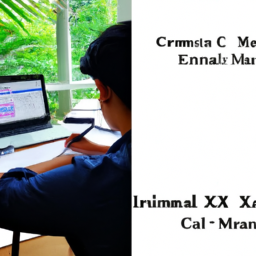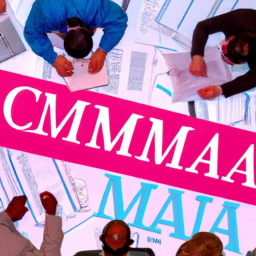Are you ready to embark on a professional journey towards excellence? Imagine standing at a crossroads, with two distinct paths before you: CIMA Certification and Six Sigma Certification. Each path represents a unique set of skills and knowledge that can propel your career to new heights. Like two rivers flowing side by side, these certifications offer different currents of expertise, but both lead to success.
In this article, we will navigate through the intricacies of CIMA Certification and Six Sigma Certification, comparing their curriculum, industry recognition, and career opportunities. By exploring the depths of these certifications, you will gain a clear understanding of which one holds more value for your professional aspirations.
So, grab your compass and join us as we embark on this quest to determine whether CIMA Certification or Six Sigma Certification is the true treasure in the realm of professional development.
Key Takeaways
- CIMA Certification offers financial management and strategic business skills, while Six Sigma Certification focuses on process improvement and quality management.
- CIMA Certification equips professionals with financial accounting, management accounting, and financial strategy skills, while Six Sigma Certification enhances problem-solving and analytical skills.
- Both certifications have high demand in the job market and open doors to lucrative job opportunities.
- The average salary for CIMA certified professionals is $90,000 per year, while Six Sigma certified professionals earn an average salary of $100,000 per year.
Overview of CIMA Certification
You’ll find that the CIMA Certification offers a comprehensive overview of financial management and strategic business skills, making it a valuable credential for professionals seeking to enhance their expertise in the field.
With the CIMA certification, you gain a deep understanding of financial accounting, management accounting, and financial strategy. This certification equips you with the necessary skills to make informed financial decisions and drive business performance.
Additionally, CIMA certification benefits include increased job prospects and higher earning potential. Employers value professionals with this certification due to their strong understanding of financial management principles and ability to analyze complex financial data.
Transitioning into the subsequent section, the overview of the six sigma certification provides insight into another valuable certification that focuses on process improvement and quality management.
Overview of Six Sigma Certification
If you’re considering pursuing a Six Sigma certification, you’ll be pleased to know that there are several benefits associated with this credential. Not only does it enhance your problem-solving and analytical skills, but it also opens up a wide range of career opportunities in various industries.
Six Sigma certification is offered at different levels, including Yellow Belt, Green Belt, Black Belt, and Master Black Belt, each representing a different level of proficiency in the methodology.
The certification process typically involves learning the DMAIC (Define, Measure, Analyze, Improve, Control) methodology, which is a data-driven approach used to improve processes and eliminate defects.
Benefits of Six Sigma Certification
Obtaining a Six Sigma certification can enhance your problem-solving skills and make you stand out as a valuable asset in any organization. This certification offers numerous benefits that can significantly impact your career.
Firstly, it provides opportunities for career growth as it demonstrates your ability to improve processes and drive efficiency within an organization. With a Six Sigma certification, you become equipped with the skills to identify and eliminate defects, reduce waste, and optimize performance. These skills are highly sought after in the job market, giving you an advantage over other candidates.
Additionally, Six Sigma certification allows you to apply a structured methodology to problem-solving, ensuring consistent and effective results. By mastering the levels and methodology of Six Sigma, you will be well-prepared to dive into the subsequent section about ‘levels and methodology’ and further enhance your knowledge and expertise.
Levels and Methodology
To fully understand the levels and methodology of Six Sigma, have you ever wondered how it can be applied to various industries and organizations?
Here are the different levels of Six Sigma and their implementation strategies:
-
White Belt: This level introduces individuals to basic Six Sigma concepts and tools. It’s typically used for awareness training.
-
Yellow Belt: Yellow Belt holders have a deeper understanding of Six Sigma methodologies and can contribute to project teams.
-
Green Belt: Green Belts are trained in advanced statistical analysis and play a significant role in process improvement projects.
-
Black Belt: Black Belts are experts in Six Sigma and lead complex improvement projects. They have a thorough understanding of statistical tools and techniques.
The implementation strategies for Six Sigma vary depending on the organization’s size, industry, and goals. Some common strategies include selecting the right projects, training employees, and creating a culture of continuous improvement.
With a clear understanding of the levels and methodology of Six Sigma, let’s now delve into a comparison of curriculum and focus.
Comparison of Curriculum and Focus
When comparing the curriculum and focus of the CIMA certification and Six Sigma, it becomes apparent that both certifications offer unique and valuable skill sets.
The CIMA certification focuses on providing a comprehensive understanding of financial management, strategic management, and business analysis. On the other hand, Six Sigma focuses on quality management and process improvement methodologies.
While there are some differences in the specific topics covered, both certifications emphasize the importance of data analysis and problem-solving skills. Additionally, they both require candidates to demonstrate their ability to apply theoretical concepts to real-world scenarios.
Moving forward into the discussion on industry recognition and demand, it’s important to consider how these differing focuses can impact the value of each certification in the job market.
Industry Recognition and Demand
Now that we’ve examined the curriculum and focus of both CIMA certification and Six Sigma, let’s shift our attention to the industry recognition and demand for these certifications. This is an important aspect to consider when evaluating their value.
In the current business landscape, industry trends play a crucial role in determining the worth of a certification. Both CIMA and Six Sigma have gained recognition and demand across various sectors. However, it’s worth noting that Six Sigma, with its focus on process improvement and quality management, has seen a significant surge in popularity in recent years.
To further illustrate this point, here are five reasons why industry professionals are increasingly valuing Six Sigma certification:
- Increased efficiency and productivity
- Enhanced customer satisfaction
- Reduction in defects and errors
- Cost savings and waste reduction
- Competitive advantage in the job market
Considering these industry trends and the growing demand for Six Sigma professionals, it’s clear that this certification holds immense value in today’s business world.
Moving forward, let’s explore the career opportunities and advancement that both CIMA certification and Six Sigma offer.
Career Opportunities and Advancement
When it comes to career opportunities and advancement, CIMA Certified professionals have a wide range of job roles available to them. These roles include financial analysts, management accountants, and financial controllers, among others.
In terms of salaries, CIMA Certified professionals can expect to earn competitive salaries that reflect their expertise and qualifications.
On the other hand, Six Sigma Certified professionals also have a variety of job roles to choose from, such as process improvement managers, quality control engineers, and operations managers. These professionals are highly sought after in industries such as manufacturing, healthcare, and finance.
In terms of salaries, Six Sigma Certified professionals can command higher salaries due to their specialized skills in process improvement and quality management.
Overall, both CIMA and Six Sigma certifications offer valuable career opportunities and the potential for advancement. The choice between the two depends on the individual’s career goals and interests within the finance or quality management fields.
Job Roles and Salaries for CIMA Certified Professionals
CIMA certified professionals are the shining stars in the corporate galaxy, commanding high salaries and coveted job roles. The CIMA certification provides excellent job prospects for individuals who are looking to advance their careers in finance and management accounting.
With this certification, you can explore various job roles such as financial analyst, management accountant, financial controller, and CFO. These roles offer competitive salaries, with entry-level positions starting at around $60,000 per year and senior-level positions reaching up to $150,000 or more.
To obtain the CIMA certification, you need to complete a rigorous examination process, which includes various levels and subjects such as financial reporting, strategic management, and risk management. With these certification requirements, CIMA certified professionals are well-prepared to excel in their job roles and contribute to the success of their organizations.
Moving forward, let’s explore the job roles and salaries for Six Sigma certified professionals.
Job Roles and Salaries for Six Sigma Certified Professionals
For those seeking career advancement and higher salaries, becoming Six Sigma certified opens the door to a world of lucrative job opportunities. The Six Sigma job market is currently experiencing high demand, with companies in various industries recognizing the value of professionals with Six Sigma skills. With this certification, you can pursue roles such as Six Sigma Black Belt, Six Sigma Green Belt, or Six Sigma Consultant. According to recent salary trends, Six Sigma certified professionals can expect competitive salaries, with the average salary for a Six Sigma Black Belt ranging from $90,000 to $130,000 per year. Additionally, Six Sigma Green Belts earn an average salary of $70,000 to $100,000 per year. These figures highlight the potential financial benefits of obtaining a Six Sigma certification. As you consider your options, understanding the job market and salary trends can help you make an informed decision. Transitioning into the next section, it is crucial to evaluate and compare the benefits of both CIMA certification and Six Sigma certification before making your choice.
Choosing the Right Certification for You
When choosing the right certification for you, it’s important to consider your career goals and interests. Think about where you see yourself in the future and what skills and knowledge you need to acquire to get there.
Additionally, evaluate the relevance of the certification to your current or desired role. Assess how the certification aligns with the responsibilities and requirements of the job you have or the job you want.
By considering these factors, you can make an informed decision and choose a certification that’ll enhance your career prospects.
Consider Your Career Goals and Interests
Imagine yourself in the future, where your career goals and interests are the driving force behind your decision to pursue either a CIMA certification or Six Sigma certification.
When considering your career growth, it’s important to evaluate which certification aligns better with your desired path. CIMA certification focuses on management accounting and finance, making it a valuable choice for individuals aiming for leadership roles in finance departments or financial management positions.
On the other hand, Six Sigma certification emphasizes process improvement and quality management, which is valuable for those pursuing careers in operations, project management, or quality control.
To make the right choice, think about the skills you want to develop and the areas of expertise that interest you the most. By evaluating the relevance to your current or desired role, you can make an informed decision about the certification that will best support your career aspirations.
Evaluate the Relevance to Your Current or Desired Role
Evaluate the relevance of each certification to your current or desired role by considering that professionals with a CIMA certification earn an average salary of $90,000 per year, while those with a Six Sigma certification earn an average salary of $100,000 per year.
When assessing the job market, it’s essential to understand the demand for skills associated with each certification.
The CIMA certification focuses on financial management, risk assessment, and strategic decision-making. These skills are highly valued in roles such as financial analyst, management accountant, or financial controller.
On the other hand, Six Sigma certification emphasizes process improvement, problem-solving, and data analysis. These skills make it particularly relevant for roles in quality management, project management, or operations.
Therefore, evaluating the relevance of each certification to your current or desired role requires a careful consideration of the specific skills and competencies required in your field.
Frequently Asked Questions
What is the cost of obtaining a CIMA certification?
The cost of obtaining a CIMA certification can vary depending on several factors such as exam fees, study materials, and training courses. However, it’s important to consider the cost in comparison to the benefits it can bring.
A cost comparison analysis would be helpful in determining the overall value of the certification. By considering the potential career advancements and increased earning potential that come with a CIMA certification, you can make an informed decision about its worth.
How long does it typically take to complete the CIMA certification program?
The CIMA Certification program typically takes around four years to complete. This program provides a comprehensive understanding of management accounting and equips you with the skills needed to succeed in various financial roles.
The benefits of obtaining a CIMA Certification include enhanced career opportunities, higher earning potential, and the ability to work in a wide range of industries. With this certification, you can pursue roles such as financial analyst, management accountant, or financial controller.
Can I pursue both CIMA certification and Six Sigma certification simultaneously?
Yes, you can pursue both the CIMA certification and the Six Sigma certification simultaneously. The CIMA certification focuses on financial management and accounting, while Six Sigma certification emphasizes process improvement and quality management. By pursuing both certifications, you can gain a well-rounded skill set in both financial and operational aspects of business. This can make you a valuable asset to organizations looking for professionals who can effectively manage both financial and operational processes.
Are there any specific prerequisites or educational requirements for obtaining a Six Sigma certification?
To obtain a Six Sigma certification, there are certain prerequisites and education requirements you need to fulfill.
Generally, there are no specific educational prerequisites, but having a background in business, engineering, or statistics can be beneficial. Some organizations may require a certain level of work experience or completion of a specific training program.
Additionally, there are different levels of Six Sigma certification, such as Green Belt, Black Belt, and Master Black Belt, each with its own requirements and criteria.
How do the salary prospects differ between professionals with CIMA certification and those with Six Sigma certification?
Are you curious about how the salary prospects differ between professionals with CIMA certification and those with Six Sigma certification?
Well, when it comes to career opportunities, both certifications can offer lucrative prospects.
Professionals with CIMA certification often find themselves in high-paying finance and accounting roles, while those with Six Sigma certification are sought after for their skills in process improvement and quality management.
This can lead to well-compensated positions in various industries.
Conclusion
After considering the curriculum, industry recognition, and career opportunities, it’s clear that both CIMA Certification and Six Sigma Certification have their own unique value.
CIMA Certification equips you with the financial skills needed for a successful career in management accounting, while Six Sigma Certification focuses on process improvement and quality control.
Whichever path you choose, both certifications can open doors to exciting opportunities and advancement in your field.
So, whether you’re a numbers guru or a process enthusiast, the choice between CIMA and Six Sigma ultimately depends on your personal interests and career goals.


























































































